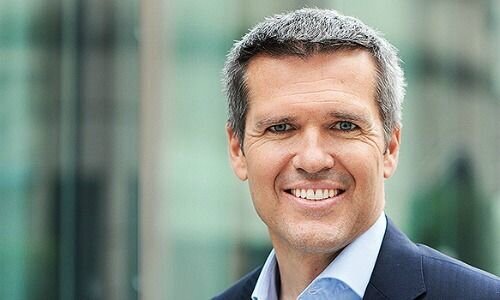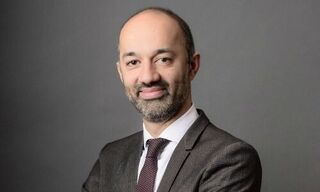With a tripartite pact, the Swiss wealth manager is creating a new type of leadership collective better equipped to deal with its size and complexity.
It represents the second coup in as many years for the world's largest wealth manager: after snapping up ING's CEO Ralph Hamers last year, UBS designated Colm Kelleher (pictured below) its next chairman, provided shareholders in April agree.
The Irish-born banker, like current Chairman Axel Weber was in 2010, is an unknown quantity in Switzerland.

Though Kelleher and Hamers are experienced, battle-scarred bankers, both have huge – mainly cultural – gaps in their respective remits. CEO Hamers, now in the job for a little over 12 months, had scant experience in Asia, none in wealth management, and is a newcomer to Switzerland's idiosyncrasies.
Enduring «Swiss» Criticism
Kelleher is about to endure the same treatment, namely that he isn't Swiss or «merely» an investment banker. To counter this, UBS enlisted Lukas Gaehwiler (picture below) at the same time, as Kelleher's deputy.

The move is a bid to preempt criticism that UBS lacks «Swissness» as it pushes further into Asia and expands its wealth business in the U.S. Together with Hamers, Kelleher and Gaehwiler represent a departure from the idea of a single figurehead, against a backdrop of increasingly complex geopolitical, business, and economic considerations facing the Swiss bank.
«It's almost impossible for complex organizations like UBS to meet the requirements of a chairman in one person,» Reto Jauch told finews.asia on Monday. He is a Zurich-based headhunter who runs the board & CEO practice at Schulthess Zimmermann & Jauch.
Leading By Collective
The emphasis on a group of three – Hamers was instrumental in search, UBS said in March – aligns with leadership theory popularized by management guru Jim Collins in his 2001 book «Good to Great».
A collective affords more room for self-reflection and sparring for leaders – and can help prevent pitfalls like concentrated power or the hubris that frequently ensues.

This represents a contrast to Credit Suisse, where Chairman António Horta-Osório has emerged at the Swiss bank's hope for recovery following several major scandals, regulatory offenses, and criminal investigations.
«Successful companies and leaders distinguish themselves with strong, complementary personalities who aren't afraid of genuine sparring partners,» Jauch said.
Little Diversity Effort
It remains to be seen how much of Hamers' time and attention will be absorbed by the specter of criminal charges in a revived money laundering probe into his time at ING. The charismatic Dutch banker passed a key test two months ago but isn't entirely in the clear yet.
The UBS «package» does very little to bed down Weber's efforts to diversify the Swiss bank's leadership: just one-third of its board is female, while five of 12 are non-European.
The top tier under Hamers is equally imbalanced: just three women are in the 11-person management (Suni Harford, who oversees asset management, Barbara Levi, UBS' chief lawyer; and domestic boss Sabine Keller-Busse).


























